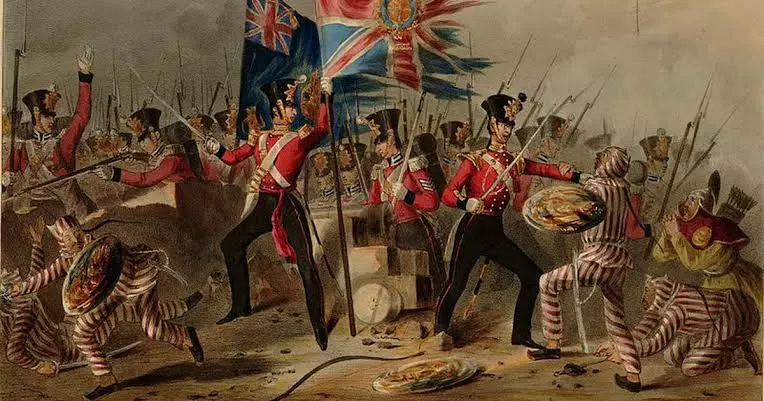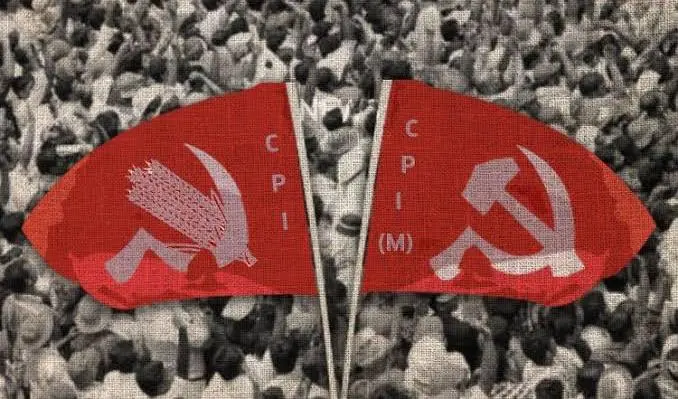 According to Livy, the Roman King Tarquinius Superbus sent his son Sextus to the rival city of Gabii to undermine it politically. Sextus pretended to have rebelled against his father and “fled” to Gabii, where the city put him in command of its military. Sextus secretly sent a messenger to his father in Rome, to seek his guidance on how to take control of the city. The king was walking through a garden of poppies and, rather than answer, began to casually knock the heads off the tallest poppies with his stick. Sextus understood the meaning of this and began to kill or arrest the most powerful people in Gabii. He was able to assume complete control and hand the city over to Rome.
According to Livy, the Roman King Tarquinius Superbus sent his son Sextus to the rival city of Gabii to undermine it politically. Sextus pretended to have rebelled against his father and “fled” to Gabii, where the city put him in command of its military. Sextus secretly sent a messenger to his father in Rome, to seek his guidance on how to take control of the city. The king was walking through a garden of poppies and, rather than answer, began to casually knock the heads off the tallest poppies with his stick. Sextus understood the meaning of this and began to kill or arrest the most powerful people in Gabii. He was able to assume complete control and hand the city over to Rome.
This has traditionally been interpreted to show what a horrific tyrant that Tarquinius Superbus was, and what a Machiavellian intriguer he was. The last king of Rome was the great villain of the origin story of the Roman Republic, and the result is a mytho-history that teaches sympathy for tall poppies; but is that really the lesson we should take?
In modern reactionary social critique, this sympathy has given birth to the idea of “tall poppy syndrome.” This is the counter-revolutionary belief that a collectivist society driven toward mediocrity destroys the truly gifted and successful to replace them with inanities who make us feel more comfortable with our own inanity. I believe we should reject this kind of theory aggressively and instead work to apply historical context to see the reality of who the tall poppies represent. We should also be aware of the reality of how a republican system, like that following Tarquinius Superbus in Rome or our own, works.
Tarquinius Superbus was himself expelled from the throne by an aristocratic oligarchy concerned first and foremost with defending its privileges from violation by a higher authority. They were not deeply concerned with the rights of the commercial middle class, nor were they consumed by a burning desire to better the lives of the poor. The conscript fathers of the Roman Senate were a privileged elite out to increase their own wealth and power. They had the right to a certain lifestyle and no one had the right to take that lifestyle from them. Roman oligarchs would sponsor public works and public sporting events from their own pocket, knowing they could enrich themselves from the state trough, because doing so preserved their privileges. The Senate were the tall poppies of Rome.
The wealthiest and most powerful members of the bourgeois are the tall poppies of our own era. They don’t openly dominate the state, like the Roman Senate, but their interests dominate the thinking of both political parties because they fund the think tanks that tell the parties what to think. There’s no conspiracy to this. It’s simply the way the liberal democratic system works. They form a powerful and wealthy membership in an exclusive club. Their views are newsworthy, even when they’re tremendously shallow and ignorant of the real world. Despite their overt clownishness, they are consulted on matters ranging from foreign policy, to immigration, to presidential elections, to education.

Like the Roman oligarchs, our modern oligarchs use philanthropy to protect the status quo and advance their political goals. This buys them popular support and passionate defenders, which further upholds the status quo. They use the good will gained by philanthropy to obscure the criminal behavior that makes it possible. MSNBC still platforms a lawyer who defended an oligarch controlled corporation’s right to profit from child slavery. This is acceptable because he is a liberal who served in Obama’s Justice Department. It’s acceptable because he represented a corporation that sponsors advertising across multiple media. It’s his reward for serving the tall poppies.

The purpose of the Marxist dictatorship of the proletariat is to control, dominate, tame, and destroy this oligarchy. Figuratively or not, the purpose of the worker’s state is to cut the heads off the tall poppies. This is necessary to prevent counterrevolution from undoing the work of the revolution itself. Worker soviets allow for participatory democracy beyond sham elections between two capitalist candidates. State power is necessary to contravene the power of capital, even as popular power is needed to contravene the power of the capitalist state. History shows us that the world will attack a successful revolution. State power is necessary to defend it.
When history is studied in this context, then it becomes clear that it is the tall poppies who are always the enemy of meaningful social transformation. They oppose even liberal reform if that reform will show how fragile their power really is and how unnecessary they are. Their fear of another Tarquinius Superbus drives them to beat us all down.
The tall poppies always fear a gardener.






